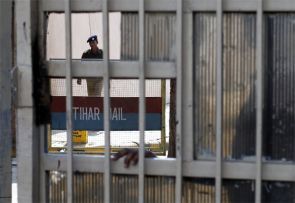 | « Back to article | Print this article |
The Juvenile Justice Act that exempts minors from severe punishment could be changed to deliver tougher punishment to juveniles accused of heinous crimes like rape and murder, reports Anita Katyal
 The public outrage over the leniency shown to the juvenile accused in the December 16 gang rape case has pushed the UPA government into considering the demand to change the law for tougher punishment to juveniles accused of heinous crimes like rape and murder.
The public outrage over the leniency shown to the juvenile accused in the December 16 gang rape case has pushed the UPA government into considering the demand to change the law for tougher punishment to juveniles accused of heinous crimes like rape and murder.
The juvenile accused in the gang rape case was sentenced to three years imprisonment in a correction or a remand home. There is growing anger over this court verdict as the juvenile accused was reported to be the most brutal and was said to be responsible for the victim’s death.
The verdict on the other four accused charged with rape and murder of a 23-year-old paramedic student is to be delivered on Tuesday.
The incident had sparked nationwide protests forcing the UPA government to amend existing laws to provide severe punishment and fast-track hearing of such cases. However, the Juvenile Justice Act that exempts minors from severe punishment has remained untouched. But this is now likely to change.
UPA sources said the Ministry of Women and Child Development, headed by Krishna Tirath, has begun internal consultations on changing the Juvenile Justice Act to allow for stringent punishment to juvenile accused. The minister will follow it up with discussions with child rights groups and lawyers as there is a large vocal section that is lobbying against any such move.
The ministry will particularly look at global practices as there are countries like the United Kingdom which make an exception in the case of heinous crimes like rape and murder while trying accused who are under 18 years.
“The age of a juvenile may not be lowered to 16 years but the WCD ministry is looking at the possibility of handing out severe punishment to the young accused in serious crimes,” a senior UPA official told rediff.com.
It was pointed out that there is a growing view in the government that the Juvenile Justice Act needs to be revisited in the light of the increasing number of young people who are being accused of heinous crimes.
Officials also clarified that all minors would not be meted out the same punishment but some kind of a gradation will be introduced to see that those between the ages of 16-18 years do not get away with lenient punishment. “This does not mean that henceforth even an eight-year-old would be handed down the same punishment in case of his involvement in a serious crime,” the official explained.
It is being suggested that persons who are close to 18 years at the time of committing the crime be treated as adults and that repeat offenders be given longer sentences. There is also a proposal that the activities of juveniles be monitored for a specified period of time after they have completed their sentence in the remand home.
It was also pointed out that any legislative change being contemplated will not alter the court’s decision in the case of the December 16 juvenile accused as the law does not apply retrospectively. However, officials admitted that the recent judgement in the case was instrumental in pushing the government into amending the Juvenile Justice Act.
While child rights groups are clearly not in favour of such changes, a majority of legal experts concur with the Centre as they feel the present law is incomplete and needs urgent review. According to the Juvenile Justice Act, a person who is below the age of 18 years at the time of committing the crime cannot be punished as per the provisions of the Indian Penal Code, but can be sent to a remand home for a maximum of three years.
Those advocating a relook at the present laws point out that there is a 180 per cent increase in the number of juveniles involved in crimes like rape and murder over the last three years, a fact which could not be dismissed lightly. It is also argued that criminal gangs are taking advantage of the law and are using younger boys in such crimes so that they can get away without being punished. Moreover, there is also a fear that the accused may take to criminal activities again after being released from the correction home.
Child rights activists, however, argue that changing the Juvenile Justice Act purely in reaction to the December 16 gang rape case could prove counter-productive. They have pointed out that juveniles involved in crimes are not born with criminal tendencies and have often been victimised. Instead of rushing to hand out severe punishment to such persons, efforts should be made to reform them as the child is not always to blame. Correction homes should offer proper counselling to ensure that the juvenile is reformed and does not take to crime again.